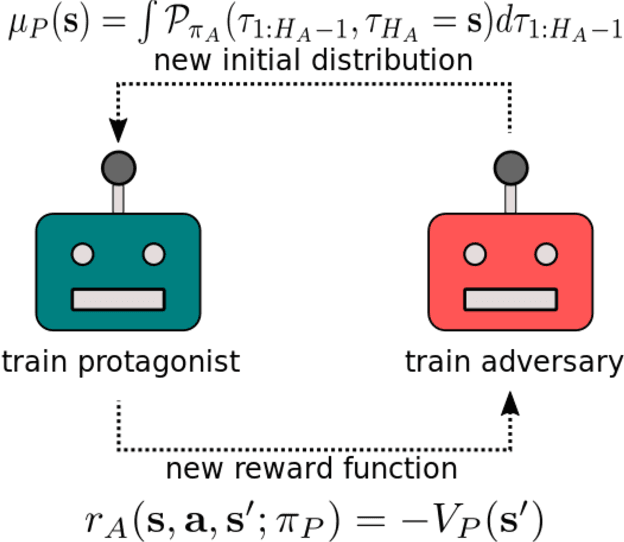Melvin Laux
Bayesian Inverse Physics for Neuro-Symbolic Robot Learning
Jun 10, 2025Abstract:Real-world robotic applications, from autonomous exploration to assistive technologies, require adaptive, interpretable, and data-efficient learning paradigms. While deep learning architectures and foundation models have driven significant advances in diverse robotic applications, they remain limited in their ability to operate efficiently and reliably in unknown and dynamic environments. In this position paper, we critically assess these limitations and introduce a conceptual framework for combining data-driven learning with deliberate, structured reasoning. Specifically, we propose leveraging differentiable physics for efficient world modeling, Bayesian inference for uncertainty-aware decision-making, and meta-learning for rapid adaptation to new tasks. By embedding physical symbolic reasoning within neural models, robots could generalize beyond their training data, reason about novel situations, and continuously expand their knowledge. We argue that such hybrid neuro-symbolic architectures are essential for the next generation of autonomous systems, and to this end, we provide a research roadmap to guide and accelerate their development.
A Modular Approach to the Embodiment of Hand Motions from Human Demonstrations
Mar 05, 2022



Abstract:Manipulating objects with robotic hands is a complicated task. Not only the pose of the robot's end effector, but also the fingers of the hand need to be controlled and coordinated. Using human demonstrations of movements is an intuitive and data-efficient way of guiding the robot's behavior. We propose a modular framework with an automatic embodiment mapping to transfer human hand motions to robotic systems and use motion capture to record human motion. We evaluate our approach on eight challenging tasks, in which a robotic arm with a mounted robotic hand needs to grasp and manipulate deformable objects or small, fragile material.
Deep Adversarial Reinforcement Learning for Object Disentangling
Mar 08, 2020



Abstract:Deep learning in combination with improved training techniques and high computational power has led to recent advances in the field of reinforcement learning (RL) and to successful robotic RL applications such as in-hand manipulation. However, most robotic RL relies on a well known initial state distribution. In real-world tasks, this information is however often not available. For example, when disentangling waste objects the actual position of the robot w.r.t.\ the objects may not match the positions the RL policy was trained for. To solve this problem, we present a novel adversarial reinforcement learning (ARL) framework. The ARL framework utilizes an adversary, which is trained to steer the original agent, the protagonist, to challenging states. We train the protagonist and the adversary jointly to allow them to adapt to the changing policy of their opponent. We show that our method can generalize from training to test scenarios by training an end-to-end system for robot control to solve a challenging object disentangling task. Experiments with a KUKA LBR+ 7-DOF robot arm show that our approach outperforms the baseline method in disentangling when starting from different initial states than provided during training.
 Add to Chrome
Add to Chrome Add to Firefox
Add to Firefox Add to Edge
Add to Edge